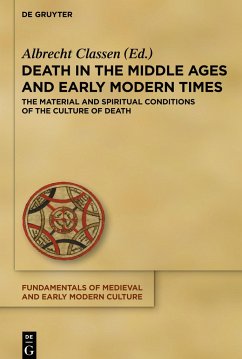
Historicism, Psychoanalysis, and Early Modern Culture

PAYBACK Punkte
29 °P sammeln!
First published in 2000. Did people in early modern Europe have a concept of an inner self? Carla Mazzio and Douglas Trevor have brought together an outstanding group of literary, cultural, and history scholars to answer this intriguing question. Through a synthesis of historicism and psychoanalytic criticism, the contributors explore the complicated, nuanced, and often surprising union of history and subjectivity in Europe centuries before psychoanalytic theory. Addressing such topics as "fetishes and Renaissances," "the cartographic unconscious," and "the topographic imaginary," these essays...
First published in 2000. Did people in early modern Europe have a concept of an inner self? Carla Mazzio and Douglas Trevor have brought together an outstanding group of literary, cultural, and history scholars to answer this intriguing question. Through a synthesis of historicism and psychoanalytic criticism, the contributors explore the complicated, nuanced, and often surprising union of history and subjectivity in Europe centuries before psychoanalytic theory. Addressing such topics as "fetishes and Renaissances," "the cartographic unconscious," and "the topographic imaginary," these essays move beyond the strict boundaries of historicism and psychoanalysis to carve out new histories of interiority in early modern Europe.














